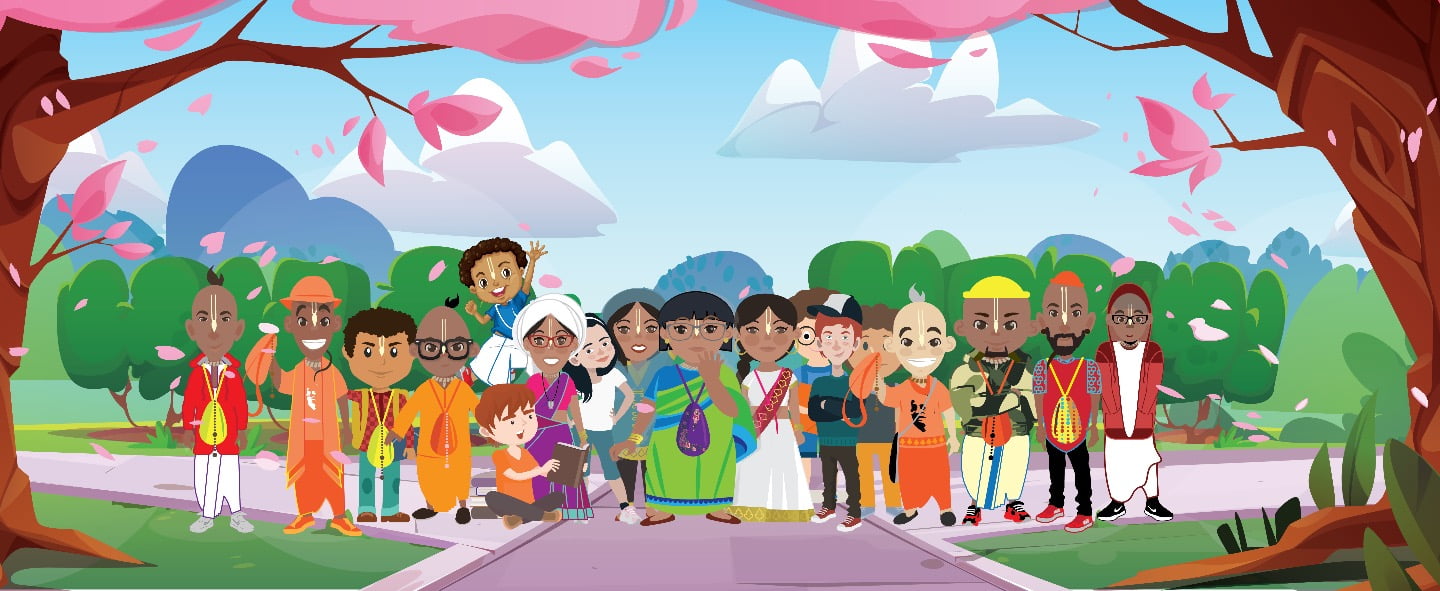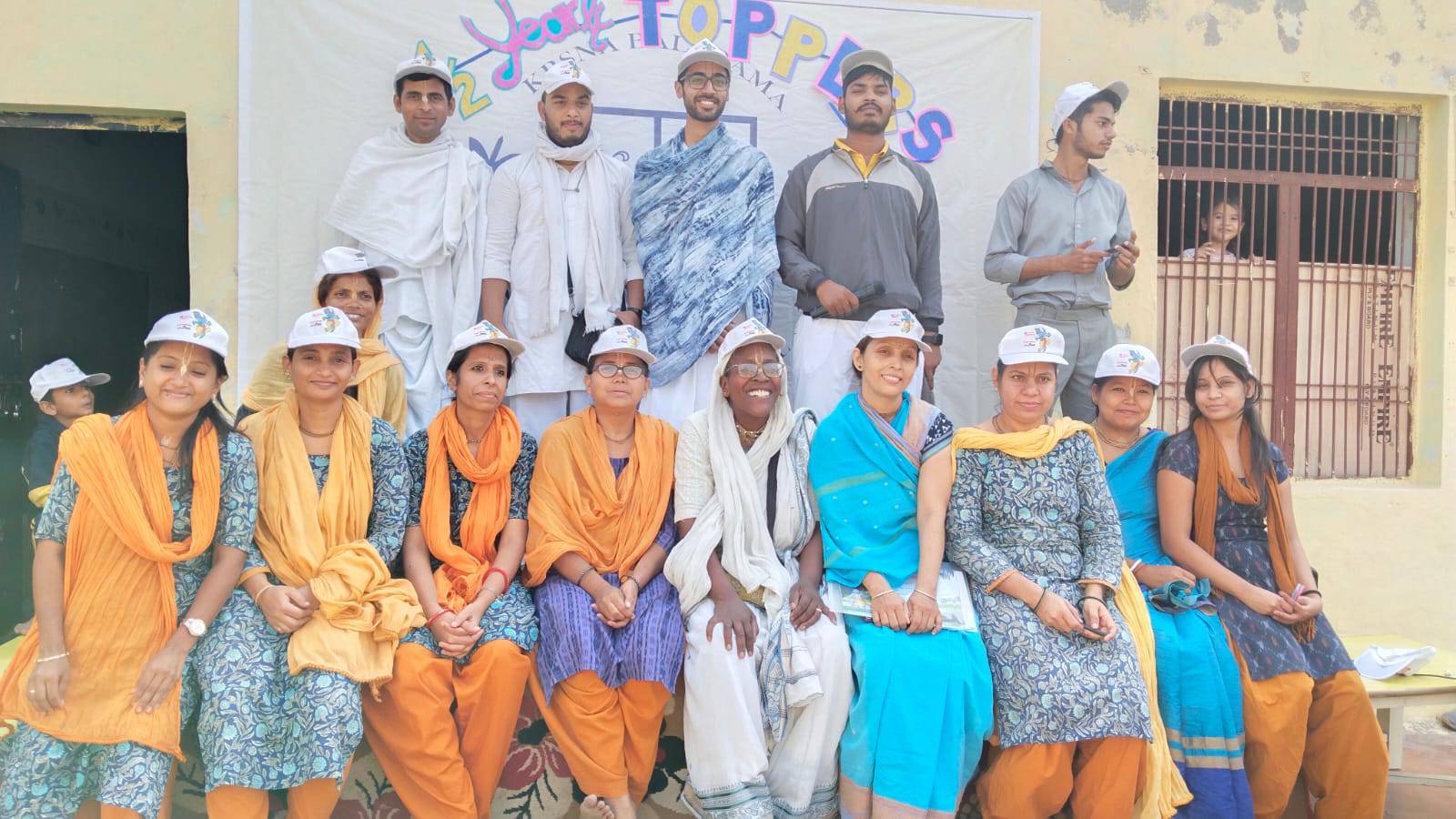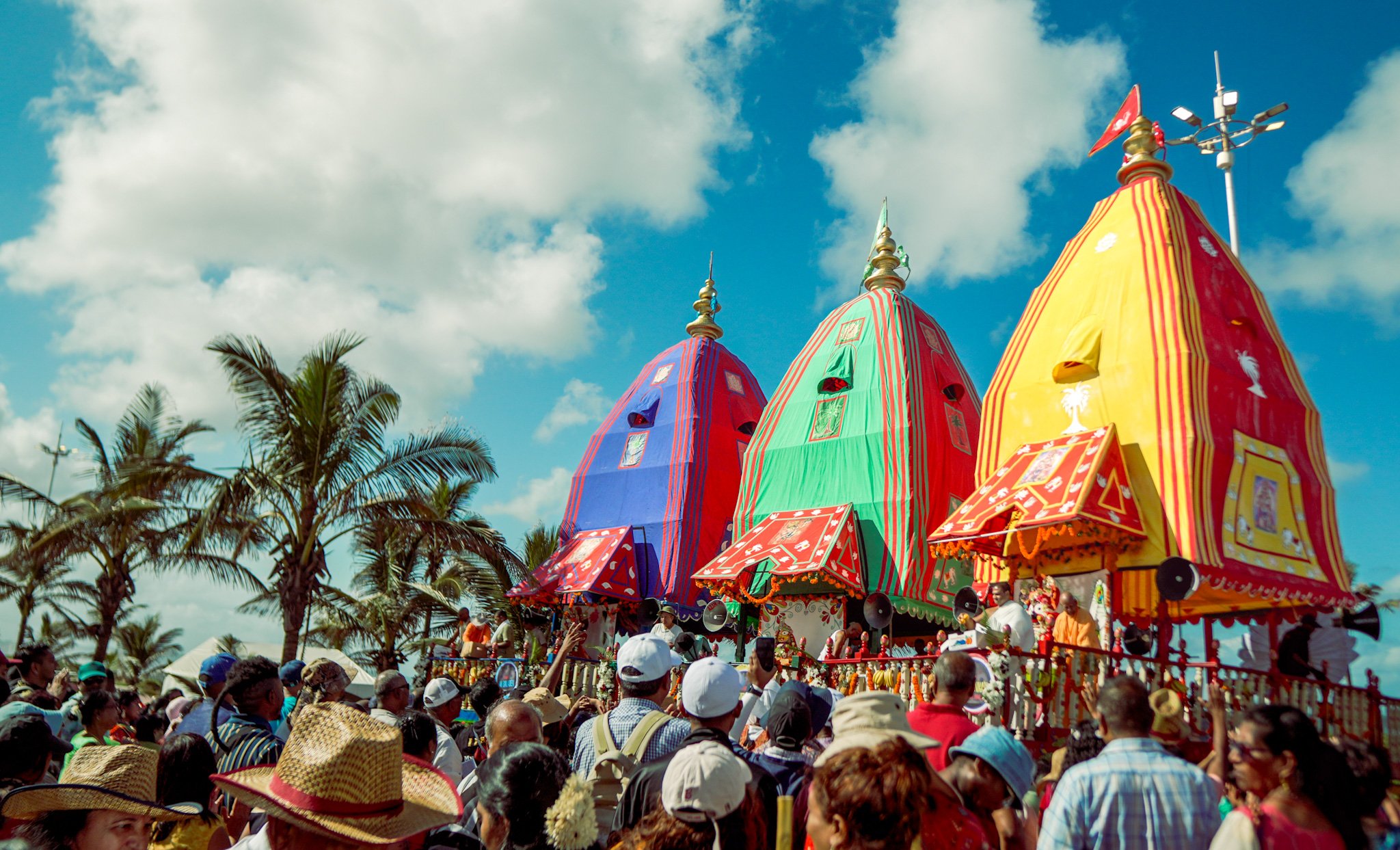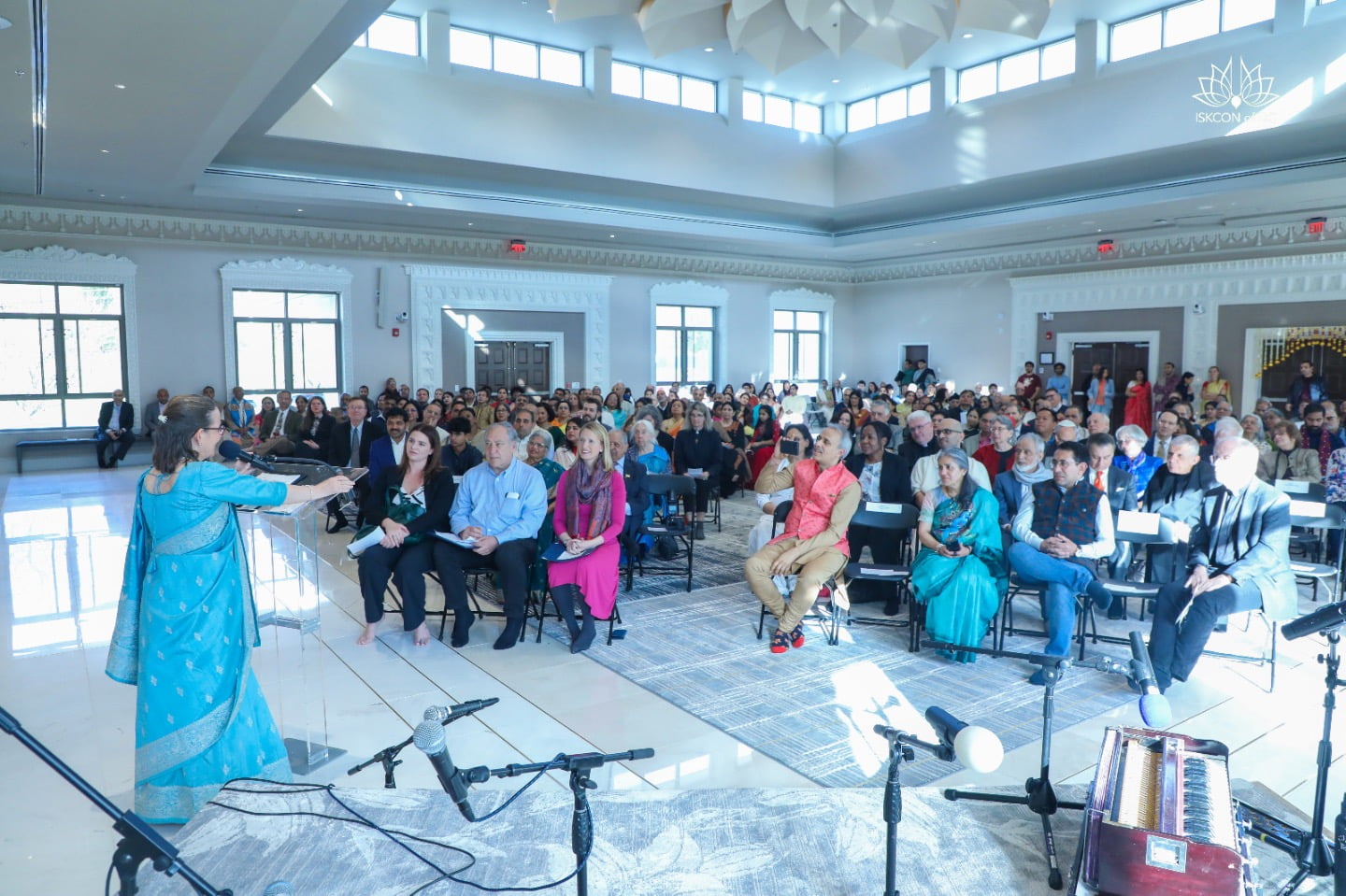ISKCON’s ‘Global Reputation’
By Mukunda Goswami | May 17, 2009

ISKCON is banned in Singapore, cherished in South Africa, tolerated in the USA, allowed in Indonesia, secretive in China, loved in India, underground in the Middle East, registered in Pakistan, valued in Brazil, present in Bangladesh, esteemed in Guyana, new in Korea, accepted in Canada, recognized in Malaysia, valued in Australia, established in Russia, permitted in Japan, honored in Nigeria, treasured in Italy, heard in Germany, and appreciated in the UK.
China and India are the two largest countries in the world, with their 1.2 and 1 billion (thousand million) populations and growing rapidly. The US and Russia, now ranked third and sixth respectively, have populations that grow much more slowly. In fact some population experts say that within the next ten years the total number of inhabitants in some European countries, and in North America and Australasia will diminish. By the way, Indonesia and Brazil come in fourth and fifth in the world population census. (A full list is available here).
Other countries where dedicated devotees live include Israel, the Philippines, France, Zambia, Thailand, Zimbabwe, Mauritius, Peru, Congo, Portugal, and Croatia.
People in some countries are proud that Hare Krishnas have settled there. But one way to see such national pride is through the Srimad Bhagavatam. In that book (10.84.13) it is intimated that people willing to die for their country, have the intelligence of animals. In some countries, Hares are hated. A reason for such animosity is linked to the Kali-yuga (present age) tendency to regard all new and different things as weird and bizarre.
Are there global trends?
Positive results are sometimes attributed to divine intervention (“Lord Nrsimhadeva [an incarnation of Krishna or God] has saved us.”) When national prohibitions were ended in Argentina, Hong Kong and Japan, some devotees thought it was “Krishna’s arrangement.”
The maxim that “God helps those that help themselves” seemed to apply here, inasmuch as devotees worked hard to remove such foreboding difficulties.
A phenomenon learned in the ban-lifting efforts, was that of “cultural conquest”. It was found out that Hare Krishna prasadam (cuisine prepared for God and offered to Him), can charm even the most inimical people. Another lesson learned was that art (particularly painting, sculpture, and architecture) tends to demonstrate that ISKCON people are more than just sentimental beaded baldies banging drums dressed in orange sheets while singing on busy street corners.
Srila Prabhupada (ISKCON’s founder [1896-1977]) himself insisted that feasts be served regularly, and that many prasadam restaurants open in every country. He also made a strong point that his own books, imbued heavily with philosophy, include pictures of paintings, no matter how primitive by high-renaissance standards. The unique architecture in temples like those in Durban, Moundsville-West Virginia, Lima, Vancouver, New Delhi, and Auckland have won over millions of locals, many of whom are professed atheists.
A general trend since 1966 – the year in which ISKCON was founded – has been acceptance. Sometimes acceptance was given grudgingly, and occasionally after protracted battles with unfavorable government officials, possessive locals, and hypocritical religionists. Many opposing elements are made up of ordinary people of the present age. This is a time when governments are secular. Most people are addicted to intoxication, illicit sex, meat-eating and spoon-fed entertainment, including movies, TV, and nightclubs. In some countries, where Hinduism is thought inferior or stupid and where it’s adamantly opposed, ISKCON has faced and faces difficult struggles.
But the tendency over time has been to have national prohibitions extinguished, zoning restrictions overcome, registrations permitted and ultimately some form of public acceptance.
Of course contrary elements still abound. Fights are far from over. On several fronts devotees are still struggling with foes. But the general development has been losing some battles but winning wars.
Avid readers of the Internet may say that ISKCON’s problems are only beginning, but history shows otherwise. Internet users are often proud of what they call globalization, a phenomenon that may or may not truly exist.
Whether the ban will ultimately be lifted in Singapore, the Polish farm temple rebuilt (it was recently destroyed by fire), whether the beautiful Bangalore temple will ever return to ISKCON, are difficult questions to answer. But, in another way, it doesn’t really matter, because the power of Maya (illusion) is eternally there.
ISKCON and its precursors have not been strangers to difficulties.
Obstacles to devotional service existed even when Lord Krishna was present on earth 5,000 years ago, what to speak of the problems facing Lord Chaitanya’s movement only 500 years ago. (Lord Caitanya is considered THE primary incarnation of God in this age) During the time of Lord Caitanya’s time on earth, most of India (including Bengal) was ruled by Islamic kings who disliked Hindus. And even many born Hindus opposed Lord Caitanya.
As affirmed at the start of this article, ISKCON’s reputation varies widely from country to country. But ISKCON members are not part of a popularity contest (like the “Idol” TV shows).
As the last verse of Bhagavad-gita states, “Wherever there is Krishna, the master of all mystics, and wherever there is Arjuna, the supreme archer, there will also certainly be opulence, victory, extraordinary power, and morality.”
This position may seem childishly optimistic. But one of the qualities of Krishna is “bhava grahi janardana”.
“Thus even though, externally, a devotee may not render full service, if he is internally sincere and serious the Lord welcomes his service nonetheless. Thus the Lord is known as bhava-grahi janardana because He takes the essence of one’s devotional mentality.” This constitutes a passage from Srila Prabhupada’s purport to the Srimad Bhagavatam, eighth canto, twenty-third chapter, second verse.
Although ISKCON’s reputation varies from country to country, one’s personal purification is what matters most. Institutional reputation will follow.












